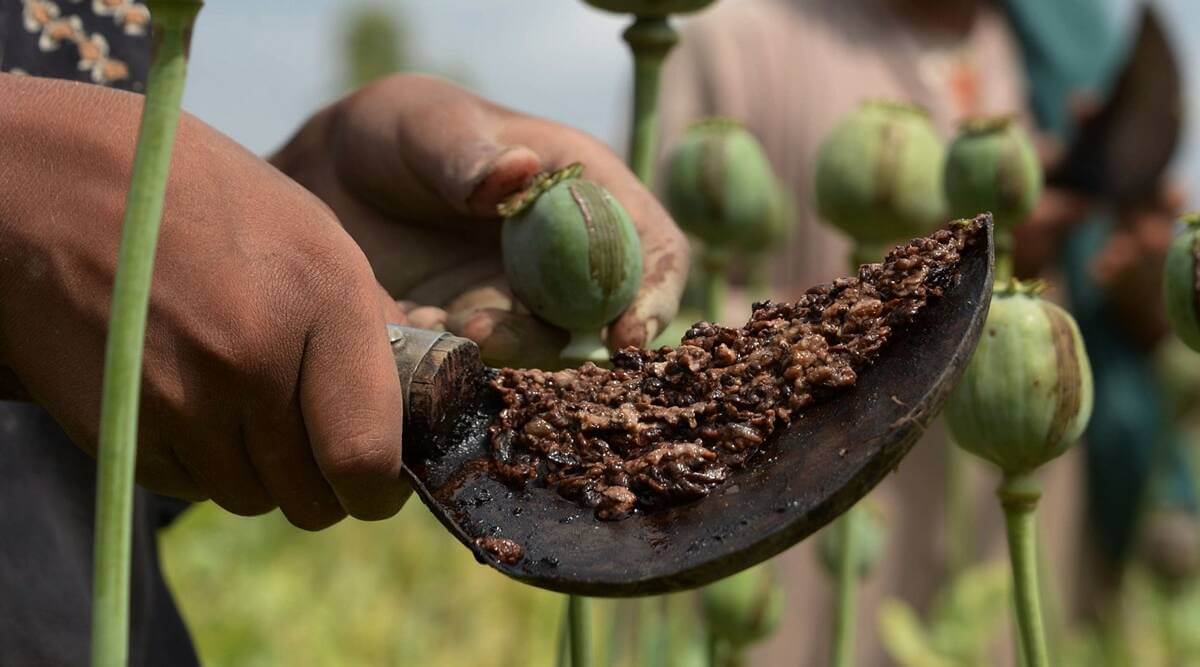China’s Foreign Ministry called on the United States (US) on Thursday to apologise and compensate for its “dishonourable” role in Afghanistan’s opiate crisis.
China’s call comes after Afghanistan’s Taliban government declared a ban on the cultivation of opium poppy on Sunday in order to crack down on drug production in the war-torn country. The international community has previously said that one of the many preconditions for recognising the Taliban as the legitimate rulers of Afghanistan is for the group to tackle illicit drug production and trafficking.
Lauding the measure taken by the interim government, Chinese Foreign Ministry Spokesperson Zhao Lijian assured during his regular press conference on Thursday that Beijing stands “ready to further deepen counter-narcotics cooperation with Afghanistan.”
Taliban chief orders ban on poppy cultivation in Afghanistan. #AFP
— AFP Photo (@AFPphoto) April 4, 2022
📸 Javed Tanveer #AFP pic.twitter.com/ISYRG5sAai
Blaming the US for the crisis, Zhao said that Washington is “the culprit of the Afghan issue,” saying it “played an ignominious role in the narcotics problem in Afghanistan by acquiescing or even participating in drugs production and trade there.” He further accused the American troops previously stationed in the country of implementing “a project to create a drug laboratory on a global scale.” “As a result, the production of opiates in the country increased more than 40 times,” Zhao asserted.
Also Read: The Taliban is Unlikely to Keep its Pledge to Ban Drugs
The spokesperson cited the research carried out by American historian Alfred McCoy, who claimed in an article that in order to fight the Soviet Union in Afghanistan, “the US generously funded local guerrillas through the CIA [Central Intelligence Agency], turning a blind eye to the fact that they were operating a chain of heroin laboratories.” Zhao also referred to the former director of the CIA’s Afghan operation, Charles Cogan, saying that Washington “didn’t really devote resources to an investigation of the drug trade in Afghanistan.”
Taliban bans opium poppy cultivation in Afghanistan. Remember, Afghanistan produces almost 85% of global opium production. Also, remember, In 2000, Afghanistan's poppy cultivation was 82,000 hectares, and in 2020, it had reached 224,000 hectares.
— Ashok Swain (@ashoswai) April 4, 2022
“The two decades of US presence in Afghanistan is two decades of death and displacement of innocent Afghan civilians and two decades of unchecked local drug proliferation,” Zhao remarked. He also accused the “irresponsible and hasty withdrawal” of the US troops last year of leaving behind “a series of grim challenges to the innocent Afghan people, including the drug issue.” “The US should reflect on its behaviour, offer sincere apologies and ample compensations, and strive to undo the harm it has inflicted on the Afghan people with concrete actions,” Zhao insisted.
Although the US spent around $9 billion on the war on drugs in Afghanistan between 2001 and 2021, it failed to destroy the drug trade. Its efforts were complicated by the fact that the opium poppy is the country’s most valuable cash crop, worth around $863 million, and occupies around 263,000 hectares of land. The crop also employs more than 500,000 people, more than any other industry in Afghanistan, and the opiate economy alone is worth over 10% of Afghanistan’s GDP. According to the United Nations Office on Drugs and Crime, Afghanistan accounted for 85% of the global opium production in 2020.
When the Taliban previously tried to ban opium production in 2000, the decision mired Afghan farmers in unsustainable levels of debt and led to an unemployment crisis. Its most recent efforts to end the country’s drug menace are part of its campaign to gain international legitimacy; however, it is not clear whether the ban will be a feasible prospect in the long run.

